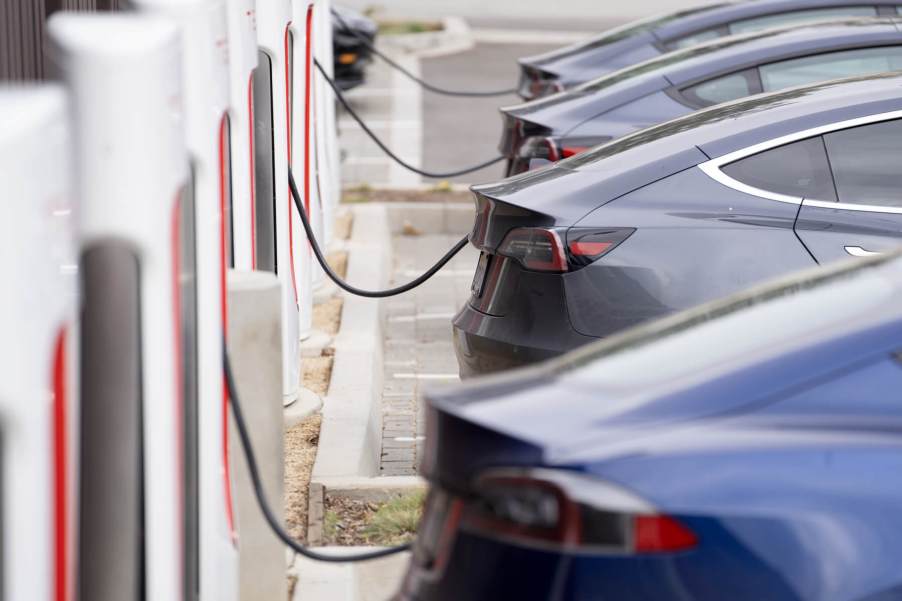
Can You Charge an EV with a Home Outlet?
Drivers are starting to flock to EVs and plug-in hybrids as more models hit the market and more infrastructure pops up to support them. However, one detail tends to snag prospective drivers: home charging. Will a standard power outlet suffice for EV home charging? Or do you need to install an upgraded level 2 EV charging system? Let’s find out.
You can charge with a standard outlet – but there’s a cost

Edmunds reports that a standard 110 or 120-volt outlet will charge an EV or PHEV. This type is called Level 1 charging, and the practice is pretty common. But there’s one problem – getting a full charge takes quite a long time.
“The catch is that Level 1 charging is basically a trickle charge that generally gets you just 2 or 3 miles of driving range for every hour of charge time,” Edmunds says.
That pace could mean dozens of hours of charging to reach some models’ full range potential. It does technically work. But it’s not the most convenient option for fully electric vehicles. On the other hand, plug-in hybrid owners may be just fine since their vehicles usually only need a fraction of the total charge of an EV.
The upside, Edmunds reports, is that almost all new EVs come with Level 1 charging cables. As long as you have an outlet within reach, you can charge your vehicle’s battery (even if it takes a while).
Is it worth installing a Level 2 home EV charger?
Level 2 EV home charging works much faster than Level 1. According to Edmunds, a Level 2 EV charger works with 240-watt home outlets like the kind your laundry machines use. Some chargers are even designed to be hardwired directly into your home’s electrical wiring.
Unfortunately, not all home garages have the necessary infrastructure for Level 2 charging. Edmunds says it needs a 240-watt outlet nearby and requires more substantial electrical wiring to handle the currents safely. Installation likely requires the help of a professional electrician.
It’s a substantial investment to move up to Level 2 home charging. Whether it’s worth the price depends on one’s commitment to daily EV use and patience with Level 1 charging speeds.
What level are public EV chargers?

Most public EV charging stations use Level 3 technology, also known as DC fast charging.
These public EV chargers are designed to charge much more quickly than either Level 1 or Level 2 since they serve drivers away from home. According to Car and Driver, DC fast chargers work at levels between 400 and 800 volts and can typically provide between 100 and 250 miles of range in 30 to 45 minutes.
Is EV home charging worth it?
Electric vehicle charging is still a developing field, with new developments and new challenges frequently arising. The industry continues to work out pain points, and solutions as EV and PHEV owners test the infrastructure in real-time.
While setting up your own home charging solution may not be the most straightforward endeavor, it can allow you to take full advantage of your EV’s many advantages. Do it right, and you may never have to visit a gas station again.


